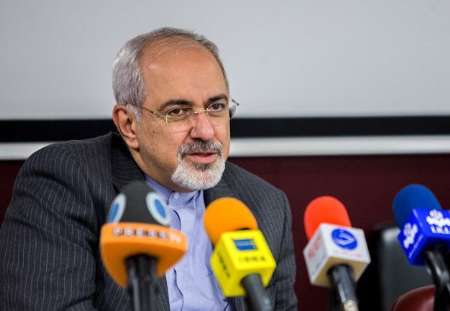Iranian FM Mohammad Javad Zarif expressed regret over the UN’s retraction of its invitation to Iran to take part in the Geneva II conference, saying that the move undermined the dignity and status of Ban Ki-moon as the UN chief.
Iranian Foreign Minister Mohammad Javad Zarif expressed regret over the UN’s retraction of its invitation to Iran to take part in the Geneva II conference, saying that the move undermined the dignity and status of Ban Ki-moon as the UN chief.
“Mr. Ban Ki-moon contacted me several times last week and I stated to him explicitly that we don’t accept any preconditions for participating in the meeting,” Zarif told reporters on Tuesday morning before leaving Ashgabat where he held meetings with the Turkmen officials.
“We regret that Mr. Ban Ki-moon has withdrawn his offer (to Iran to take part in the Geneva II conference) and believe that such an attitude is not appropriate for the status and dignity of the Secretary-General,” he added.
Ban Ki-moon sent a letter to Iran on Monday to invite the country to the Geneva II peace conference on Syria. Yet, a few hours later, the US State Department Spokeswoman, Jen Psaki, stated that “if Iran does not fully and publicly accept the Geneva I communiqué, the invitation must be rescinded.”
In response to Psaki's statements, the Iranian foreign ministry spokeswoman reiterated that Tehran would never accept any precondition for its participation in the gathering.
“We will not accept any preconditions for our presence in the Geneva II and we will take part in the conference as per the invitation (extended to Iran) and without any precondition,” Marziyeh Afkham stressed.
She underscored that Iran has always supported political solution to the Syrian crisis, and said, “In our opinion, the Geneva II conference can provide proper conditions for taking effective steps in this framework.”
The invitation enraged the US, Britain and the main Syrian opposition body, which warned it would not turn up in the Swiss town of Montreux unless Iran conceded on the issue of a transitional government – a central pillar of western-backed attempts to oust President Bashar al-Assad. The US said the UN must take back its invitation.
The threat and the pressures by the US-led West could eventually make Ban Ki-moon rescind his invitation to Iran. Later his Spokesman Martin Nesirky said, "Ban is deeply disappointed at Iran’s statements rejecting the June 2012 Geneva communiqué.”
Addressing a press briefing at the UN headquarters in New York on Monday, Nesirky added, "Given that it has chosen to remain outside that basic understanding, he has decided that the one-day Montreux gathering will proceed without Iran's participation."
The 2012 Geneva communiqué outlines measures for a transition of power in Syria, and its key demand means Syrian President Bashar al-Assad will have to step down.
As soon as Iran's invitation was rescinded, Syria's opposition national coalition immediately confirmed its participation in the forthcoming talks, known as Geneva II.